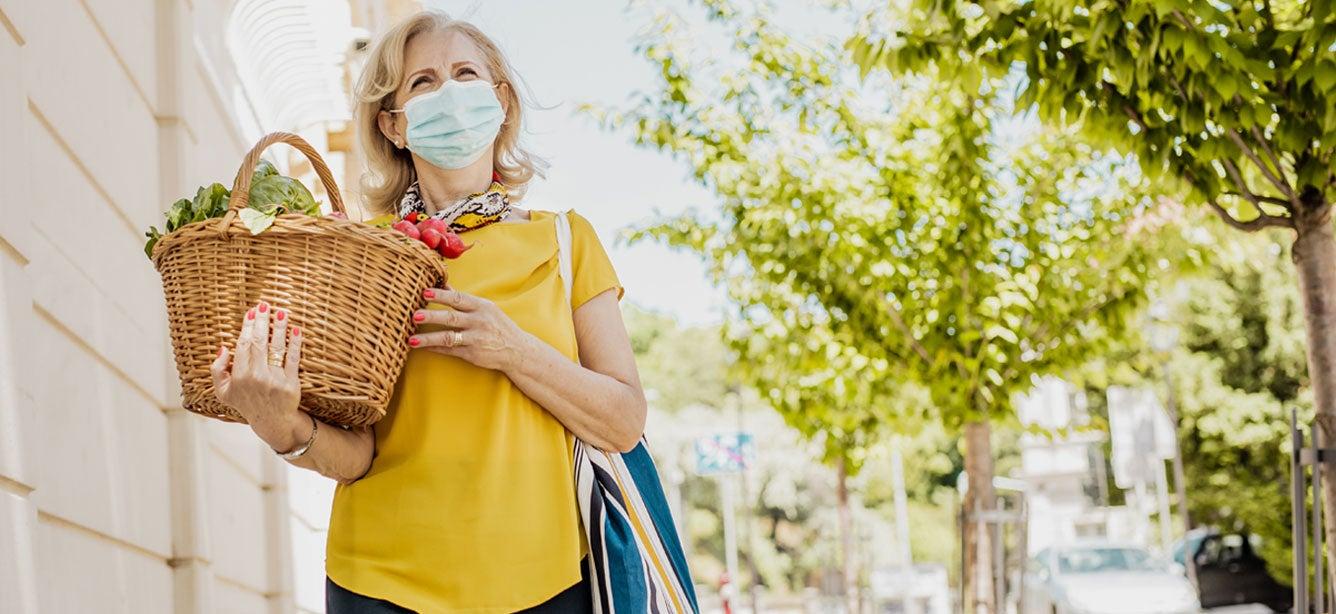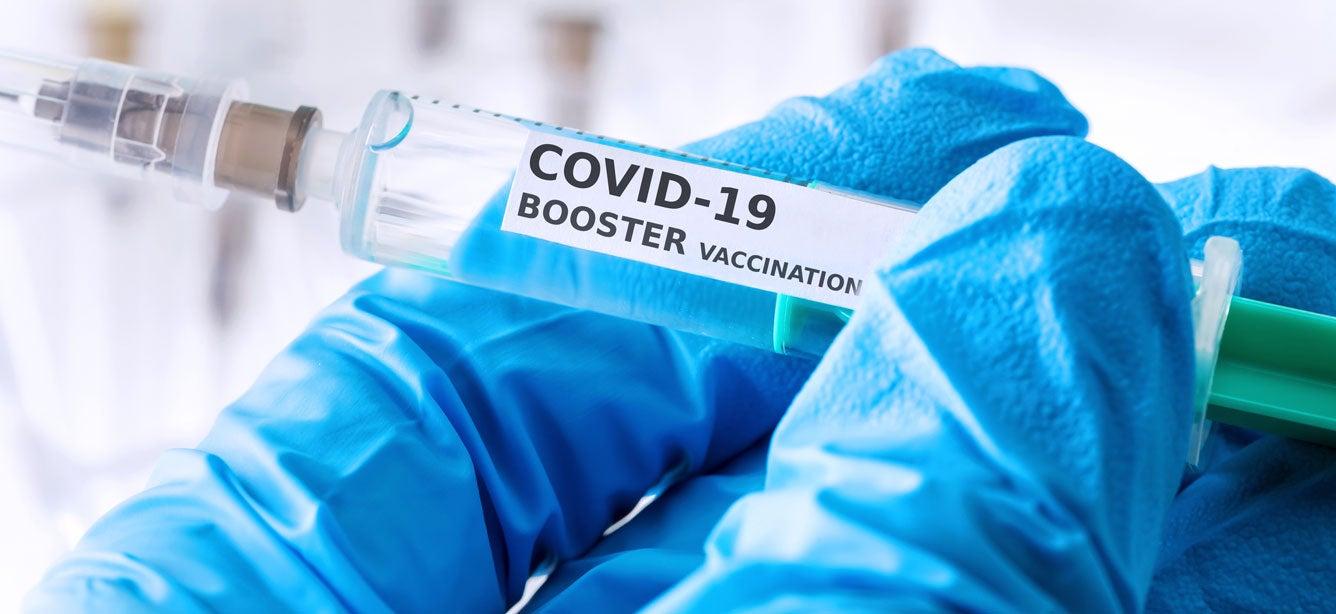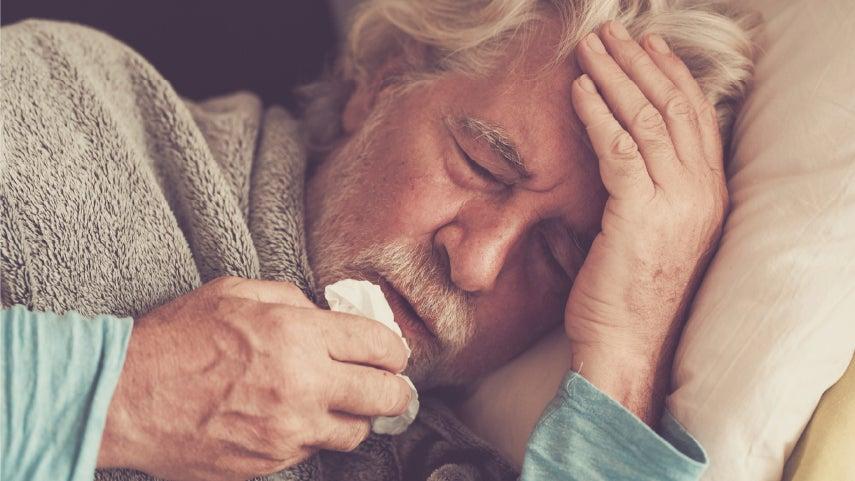
Although it’s been more than two years since the COVID-19 pandemic began in early 2020, we are still learning how to live with the virus and understanding the best ways to stay safe. While many questions remain unanswered, there’s a lot we know and can do to help us improve our lives as we try to get back to “normal.” Here is the latest advice from public health experts about the best ways to protect yourself and to reduce the spread. Some of these tips will be familiar to you, and some are new.
Here are five things to remember.
1. Remember the rest of your health.
- Many older adults have one or more chronic conditions, such as diabetes, heart disease or hypertension. For managing these conditions, most health care offices are open to seeing patients in person, but you may still want to consider seeing your doctor using a telehealth visit to minimize exposure to others who may be infected.. We have some great resources to prepare you for that visit here.
- Many health care providers are now encouraging some patients to schedule the routine visits they may have been putting off. Speak to your doctor about whether vaccinations and other preventive services are up to date to help prevent disease.
- Do not delay emergency care, especially if you are experiencing shortness of breath, chest pain, or discomfort in your arms, back, or neck. These could be symptoms of a heart attack or stroke. Acting fast can save your life.
2. Do I need a vaccine if I already had COVID-19?
- Getting a COVID vaccine and booster shot is recommended by health officials, regardless of whether you have had Covid-19 in the past. Several studies suggest getting a COVID vaccine can reduce—but not eliminate—the risk of long-term symptoms, too.
- Adults 50 and older and those with weakened immune systems are now eligible to receive a second booster shot in the United States.
- All the boosters can be administered four months after your last shot. While it takes the immune system about a week to 10 days to become fully effective, booster shots start having an effect in just a few days.
3. Masking protects you and others.
- No states are requiring people generally to wear masks in public places, but you may choose to wear a mask at any time based on your own level of comfort and personal risk.
- To protect yourself and others from COVID-19, CDC continues to recommend you wear the most protective mask you can that fits well and that you will wear consistently, especially if you are immunocompromised or more likely to get very sick from COVID-19.
- If you have a condition or are taking medications that weaken your immune system, your immune response to COVID-19 vaccination may not be as strong as in people who are not immunocompromised.
- Check your county’s COVID-19 Community Level for recommendations on whether you should wear a mask and additional actions you can take to protect yourself from COVID-19.
- If you are an adult who’s been boosted, you don’t need to quarantine after a potential exposure to someone who has COVID-19. But experts say you should get tested at least five days after your exposure and wear a mask around other people for 10 days.
4. Use common-sense-actions to stay safe.
- You should regularly clean frequently touched surfaces in your home such as light switches or doorknobs.
- If it’s safe to do so, open doors and windows as much as you can to bring in fresh, outdoor air. Even having a window cracked open slightly can help.
- Manage stress, get enough sleep, and wash your hands often (and for at least 20 seconds) with soap and water. If soap and water is not available, use hand sanitizer that contains at least 60% alcohol.
- Eat healthy foods and try to avoid too much saturated fat, sugar, and salt. Have 30 days of medication on hand, and try to stay physically and socially active. Regular physical activity benefits your mind and body! Go for a walk, or try chair exercises with NIH’s Go4 Life.
5. Ask for help if you need it.
- If you are at high-risk of complications from COVID-19 or are unable to get items you need, consider contacting family or friends to lend a hand.
- If you have emotional stress and need help coping, consult a mental health specialist.
- If you’re having trouble paying your bills, use our BenefitsCheckUp tool to see if you qualify for the hundreds of programs that help older adults pay for food, housing, utilities, medication, and more.
- Stay connected to family, friends and neighbors with phone calls, letters, e-mail, and through social media.
We hope you and your loved ones have a safe and healthy summer.




